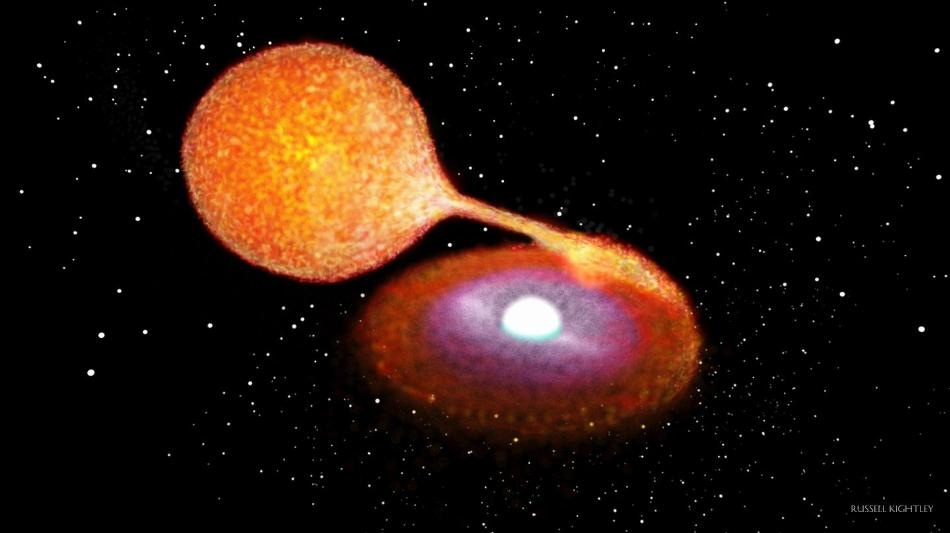Aug 18 2017
Astronomers have identified a white dwarf star in our galaxy that may be the leftover remains of a recently discovered type of supernova.
 Image of the accretion disk: A snapshot of the binary star system before the violent supernova explosion blew it to pieces. This material relates to a paper that appeared in the 18 August 2017, issue of Science, published by AAAS. The paper, by S. Vennes at Astronomical Institute of Czech Academy of Sciences in Ondrejov, Czech Republic, and colleagues was titled, "An unusual white dwarf star may be a surviving remnant of a subluminous Type Ia supernova." (Credit: Copyright Russell Kightley (http://scientific.pictures))
Image of the accretion disk: A snapshot of the binary star system before the violent supernova explosion blew it to pieces. This material relates to a paper that appeared in the 18 August 2017, issue of Science, published by AAAS. The paper, by S. Vennes at Astronomical Institute of Czech Academy of Sciences in Ondrejov, Czech Republic, and colleagues was titled, "An unusual white dwarf star may be a surviving remnant of a subluminous Type Ia supernova." (Credit: Copyright Russell Kightley (http://scientific.pictures))
The properties of this unusual white dwarf, known as LP 40-365, may help scientists determine how such unusual supernovae are created, say Stephane Vennes and colleagues. A common group of exploding stars, known as Type Ia supernovae, have a fairly uniform brightness that makes them useful for cosmology. Type Ia supernovae are caused by the complete destruction of a white dwarf star in a thermonuclear explosion. Recently, astronomers have discovered a related form of supernova, called Type Iax, which look like Type Ia, but are much fainter. Type Iax supernovae may be caused by the partial destruction of a white dwarf star in such an explosion. If that interpretation is correct, part of the white dwarf should survive as a leftover object. The scientists have identified LP 40-365 as an unusual white dwarf with a low mass, high velocity and strange composition - exactly as might be expected for the leftover star from a Type Iax event. They calculate that the explosion must have occurred between five and 50 million years ago.